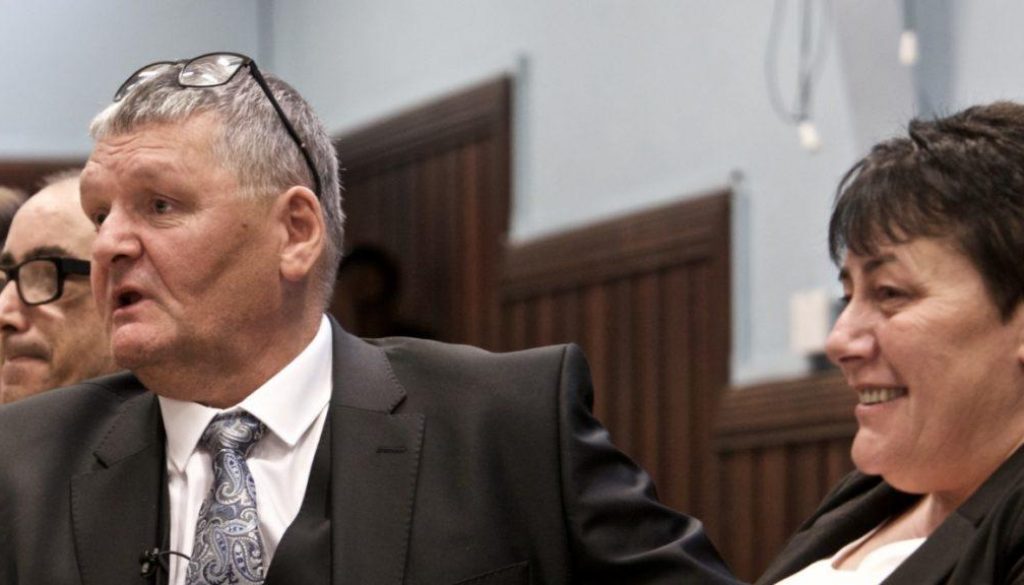Wullie Beck
Everyone at MOJO sends their condolences to Louise, and to the family and friends of Wullie Beck, who has died at the age of 59.
Wullie fought tirelessly for the last 39 years of his life to overturn a wrongful conviction for a robbery in 1981. Like too many others, he found our justice system deaf to his demands for justice.
We reproduce below an article published yesterday (27 May) on the STV News website. The original article can be found HERE.
A miscarriage of justice campaigner who spent decades trying to overturn his conviction for armed robbery has died suddenly.
William Beck, 59, suffered a heart attack on May 20 while with his family in Glasgow. Paramedics were unable to save him.
Mr Beck, known as Wullie, was jailed for six years in 1981 for a post office robbery in Whitburn, West Lothian.
He denied the crime and over the following 39 years fought to clear his name while supporting other miscarriage of justice campaigns.
Wife Louise told STV News: “He was such a family man who lived for his two daughters and two wee grandsons — they were his whole world.
“But he died without being able to prove his innocence which meant everything to him and sometimes took over his life. Right to the end, he was trying to find a way and hoped to undergo a lie detector test.
“As far as Wullie was concerned, the justice system in Scotland is not interested in getting to the truth.”
In 2006, three judges at the Court of Session rejected a plea for a time extension in Mr Beck’s appeal bid.
Seven years later he discovered that one of the judges had been the Crown lawyer who prosecuted his robbery case while another was the son of the judge who jailed him. The discovery fuelled his sense of grievance.
Bristol University’s Innocence Project, led by Dr Michael Naughton, examined Mr Beck’s case and concluded there was a “real likelihood of a miscarriage of justice”. But an appeal was unsuccesful.
Dr Naughton said: “I don’t say this lightly and I don’t say it about many other convicted people, but I believe he was innocent.
“His case often overwhelmed him and I said to him he had tried everything and was not going to overturn his convictions and should try to move on.
“I would say to him ‘everyone you know, knows you are innocent’, and that he should try to put it behind him. He might manage for six months or so but it would always resurface — he could not let it go.
“In some ways it tormented him and his family. Most of my research is critiquing the appeals system and it shows that not all innocent people overturn their convictions in the existing system. He was one of those people.
“He was also always trying to help other people in similar situations. The miscarriage of justice world has lost a very big voice.”

![16[2]](https://mojoscotland.org/wp-content/uploads/2024/06/162-1024x768-394x330.jpg)

